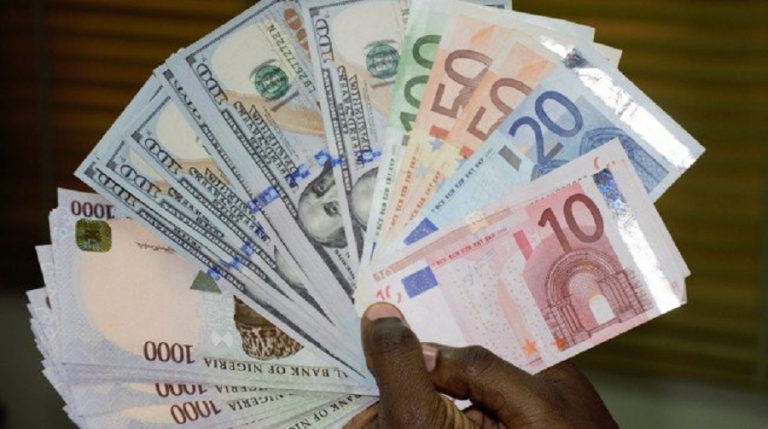The Naira experienced a notable depreciation against the US dollar on February 21, 2024, peaking at an intra-day high of N1,755.
This increase coincided with heightened demand pressure, exacerbating the depreciation trend of Nigeria’s currency.
Concurrently, the official exchange rate settled at N1,542.58 to $1 on the same day, underscoring the currency’s volatility.
According to data from the Nigerian Autonomous Foreign Exchange Market (NAFEM), where foreign exchange is officially traded, the domestic currency demonstrated a modest appreciation of 0.56%, concluding the day at N1,542.58 to a dollar.
- This represents an N8.66 drop or a 0.56% increase in the local currency compared to the N1,551.24 closed on Friday.
- The intraday high recorded a record high of N1755/$1, while the intraday low was N1050/$1, representing a wide spread of N705/$1.
- According to data obtained from the official NAFEM window, forex turnover at the close of the trading was $172.14 million, representing a 21.82% increase compared to the previous day.
- However, the Naira depreciated against dollar in the parallel forex market, where forex is unofficially traded, with the exchange rate quoted at N1,830/$1, reflecting a 7.10% decrease from the N1,700 rate it closed at the previous day.
- Similarly, the Great British Pound (GBP) stood at £1/N2210, a decline from £1/N2,120 recorded the previous day, this marks a notable decrease of 4.07% compared to the N2,120 rate recorded the previous day.
- Additionally, the Naira weakened against the Euro by 2.43%, closing at N1855/EUR1 compared to N1810/EUR1 reported the previous day.
What you should know
In the cryptocurrency market where forex is sold using stablecoins, the Naira also settled at N1,876.50/$1.
Nairametrics reported that Crypto trading platform, Binance has taken some actions to adjust trading on its platform by Nigerians to address what it described as an unusual currency movement.
While many Nigerians have been complaining of facing restrictions with buying and selling USDT on the platform since Tuesday, Binance said its action was “to protect users and prevent any abuse.”
The company also distances itself from the forex debacle in Nigeria saying its platform is “market-driven and not intended to be a proxy for currency pricing in Nigeria.”
This development comes amidst unconfirmed reports that the Central Bank of Nigeria (CBN), in conjunction with other government agencies had allegedly ordered Binance to set a cap on Nigerian traders selling USDT.

